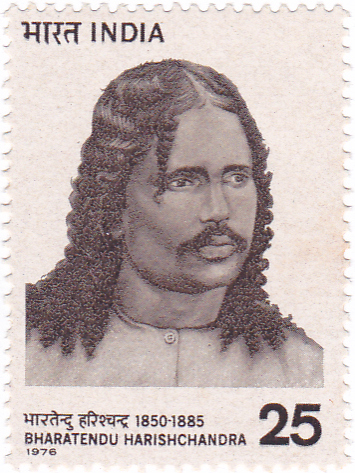Bhartendu Harishchandra was born in Kashi. His personality was an embodiment of patriotism and revolution oriented. In the very childhood, he had realized the misery and abysmal condition of the country.
Bhartendu Harishchandra was an unequalled hero of the renaissance consciousness. He had a special association with Ishwarchandra Viddhasagar, a prominent figure and the famous sage of the Bengal Renaissance. His mind was restless to illuminate the Hindi sphere with the light of modernism and realization of freedom. To materialize his aspirations, he encouraged and motivated the likeminded men of letters. He established Tadiya Samaj, published magazines and journals and created literatures in various genres. He launched a magazine named Kavivachansudha and edited Harishchandra Magazine, which started to be published in the name of Harishchandra Chandrika.
For the women education, he published Bal Bodhini magazine. He translated the dramas in the Bangla language as well, out of which Dhananjay Vijay, Viddha Sundar, Pakhand Vidamban, Satya Harishchandra and Mudra Rakshash are prominent. His important dramas are – Vaidiki Hinsa Hinsa Na Bhavti, Shri Chandrawali, Bharat Adarsh, Andher Nagri, Neel Devi etc.
Hindi began a new shape in 1873 as per the perception of Bhartendu Harishchandra. This shape was absolutely new in craft and sensibility. The journey of Hindi in prose of Khadi Boli had started being animated with caste sensibility, which Bhartendu Harishchandra and his contemporary authors gave the desired momentum by their accomplishes.
The tradition of Hindi dramas and prose writing starts from Bhartendu. The impacts of Bhartendu are visible on his contemporaries. His contributions in the development of the modern Hindi prose are significant. He did not only lead his contemporary authors but he also worked as torch bearer for the authors to come. It is said that he also went to Delhi Darbar on behalf of Maharaja of Benares to request for a legal ban on cow slaughter. He also drew a petition on the same later with 60,000 signatories and was submitted to Lord lytton but no action was taken so he was given the title “Vir Vaishnava”







Leave a Reply